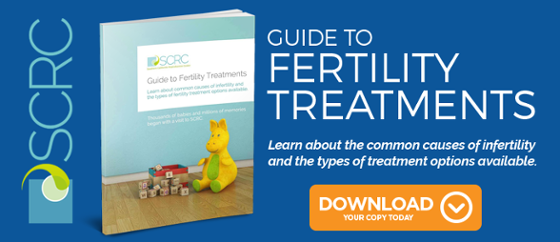 Infertility is such a difficult thing to go through. Disappointment, grief, frustration, fear: by the time you seek expert advice, your emotions have probably already been through the wringer. Somehow, you summoned the courage to ask for help, submit to testing, and undergo treatment, but it’s not working. When all of this emotion and effort is met with more disappointment, where do you turn next?
Infertility is such a difficult thing to go through. Disappointment, grief, frustration, fear: by the time you seek expert advice, your emotions have probably already been through the wringer. Somehow, you summoned the courage to ask for help, submit to testing, and undergo treatment, but it’s not working. When all of this emotion and effort is met with more disappointment, where do you turn next?
If you’ve been through treatment for infertility for months (or even years) without success, getting a second opinion can offer you new information, new possibilities, renewed hope, and a fresh sense of purpose. You don’t need to justify your desire to consult another doctor. Choosing your next steps for fertility treatment is a significant decision, and you have a right to all the information and reassurance you need.
When should I think about seeking a second opinion?
If you’re not sure whether it’s time to look further afield, here are some of the most common reasons why you might seek a second opinion about your fertility treatment.
You’ve been under the care of your primary care doctor or OB-GYN and want to explore more specialized help
Many patients struggling with fertility first seek help with their own doctor. Your primary physician or gynecologist may run some preliminary tests, recommend lifestyle changes or complementary fertility therapies such as acupuncture, or perhaps even prescribe you a fertility medication such as Clomid. If you’ve explored some or all of these options with your doctor and still haven’t gotten pregnant, you are probably at the point where it makes sense to seek a second opinion from a fertility expert. Reproductive endocrinologists (REs) have received specialized training in the field of infertility and will be able to offer you more advanced diagnostic and treatment options.
You suspect that there may be more to your infertility diagnosis
While many cases of infertility are due to unknown causes (the dreaded “unspecified” diagnosis), undergoing a thorough diagnostic process is so important. If you are worried that something has been missed or feel that more investigation is necessary, it may be a good idea to seek a second opinion. A fertility expert with more experience may be able to look at your test results with fresh eyes and see something that was previously overlooked. They may order new or different tests. A reproductive endocrinologist who stays up to date with the latest research and developments may be able to suggest new avenues for you to explore.
You have had several unsuccessful IVF cycles with your current clinic
The hard truth is that some IVF cycles fail, even at the most prestigious clinics. The human reproductive system is complex and each patient is unique, which means that there is an element of trial and error to every cycle. Fertility treatment takes time. However, if you have undergone three or more unsuccessful rounds of IVF and feel that you’re not getting any closer to an answer, it could be time to look elsewhere.
While the basic components of an IVF cycle are the same at every clinic, there are many variables which can affect the outcome. Failure at one clinic does not mean that failure is inevitable. Each clinic and specialist has their own background, education, and way of doing things. A different method for medication dosing and timing, access to a more advanced laboratory which uses a different culturing medium, incubators, or even air filtration system, or a new approach to the embryo transfer (such as personalized embryo transfer (pET) timing) could be the final piece of the puzzle.
You want to try something new that your current clinic can’t offer
When you are putting so much effort into trying to conceive, you want to know that you and your doctor have explored all possible options. Reproductive endocrinology is a rapidly evolving field, and new research, technology, and best practices are constantly under development. In your own research, you may have come across a new test or treatment that you would like to explore. If your current clinic is “set in its ways” or does not have a cutting-edge fertility laboratory, you may need to look for another clinic which can help you ensure that you really have tried everything.
You have concerns about your relationship with your team
The rapport you have with your doctor and treatment team is important. Yes, they are the experts, and you trust them to help you make the right choices, but you are also a part of the team. You should be fully informed about the decisions being made about your treatment, and you should feel comfortable asking questions and voicing any concerns that come up. If you are being presented with only one option for treatment, if your doctor is not taking the time to fully explain your treatment plan and the reasoning behind it, if they are only talking about the positives and not informing you of any possible risks involved, it could be time to switch doctors. This is a professional relationship and you have the right to be treated with respect at every stage.
Sometimes it can be more difficult to put your finger on exactly what feels off about your experience. You don’t always need an obvious red flag to tell you that this is not the right clinic for you. There could be a mismatch between the clinic’s culture and your needs. Fertility experts are often busy, and your time together is likely to be limited. It’s not reasonable to expect your doctor or nurse to be a primary source of emotional support as you go through treatment, but that doesn’t mean that you should have to deal with dismissive, insensitive, or rude behavior. Going through infertility is an incredibly personal and often challenging experience, and your team should acknowledge and respect that. If you feel that you are not being treated with empathy and compassion or that you are not being heard, it may be time to move on.
Your doctor recommends that you seek a second opinion
Sometimes, it may be your doctor who brings up the idea of seeking a second opinion. This can be difficult news to hear. It does not mean that your case is hopeless or that you are a “difficult patient.” Reproductive endocrinology is a large and complex subject, and REs often have their own sub-specialties and areas of expertise. Your own doctor may know that another colleague has more specific knowledge and experience with some of the issues you are facing, or that another clinic has a higher success rate with patients who match your profile. A doctor with integrity will always put your quality of care first and help you find the best possible treatment out there for you, even if it means handing over your case to another expert.
How should I choose which clinic to visit next?
Finding the right fertility clinic can be challenging, even if you’ve already been through the process before. While it can be a struggle to think about “starting over” with a new doctor or clinic, remember that you have knowledge and resources now that you didn’t have the first time.
Ask your doctor
If you have a good relationship with your current physician, this is something you can talk about with them. You’ve already been through a lot with your doctor, and it’s natural to feel a little apprehensive about bringing it up, but you don’t need to feel awkward or nervous about this conversation. Most fertility experts are in this field because they truly care about helping families grow. They have your best interests at heart and will not see your desire for a second opinion as rejection or betrayal and they will not be insulted. In fact, it is common for doctors themselves to ask for input or second opinions from other colleagues they respect and admire. Ask them for a recommendation. At this point, they know your case and your needs, and they may be able to refer you to someone who can move your treatment forward.
If your current doctor is not supportive of your request for a second opinion, that is a strong sign that this is not a good fit.
Reach out to your network
You are not alone in your experience of infertility or in your desire to get the answers you need. If you have not already joined a support group or community of people going through fertility treatment, this is a great time to explore those resources. Talking to others who have first hand experience of different clinics and doctors can turn up valuable leads.
Arrive prepared
There are a few things you can do to make finding a qualified second opinion a smoother process.
- Go over your insurance policy again to see what may be covered.
- Have a thorough copy of your medical records and test results on hand before you visit a new clinic.
- Bring any notes you’ve taken at your previous clinic visits.
- Prepare a list of specific questions to ask ahead of time.
- If there are tests or treatments you would like to try next, don’t hesitate to bring them up during your visit.
There are many reasons why you may want to ask for a second opinion about your infertility diagnosis or treatment, but only you can make the call that it’s time to move on. Whether you are unsatisfied with your current level of care or just want peace of mind that no stone has been left unturned, this is a positive move. You’re taking charge of your own health and fertility and being proactive. Don’t hesitate to reach out and ask for more help when you need it. You’ve overcome so much to get to this point, and you deserve the medical care that’s right for you and your family, no matter what.
Share this on social media:





